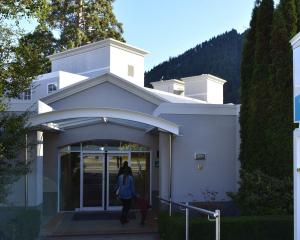Judge Jon Jackson ruled in a decision released on August 26 that farmers Guy and Davida Mead of Dingleburn Station could not seek a contribution from the society towards $16,477.43 in court costs they incurred in successfully appealing a Queenstown Lakes District Council subdivision consent decision.
In August, the society successfully defended a costs claim of $167,878 brought by the QLDC and the Matukituki Trust, involving a residential building platform consent for Roys Peninsula.
Judge Jackson's costs decision was disapproving of the Meads' lawyers' adverserial approach towards the society.
Judge Jackson also noted without the society's involvement at the June appeal hearing, the Meads would not have offered to tighten up conditions and offer a restrictive covenant, which "had a significant impact on the court's decision to allow the appeal".
The Queenstown Lakes District Council had declined consent in 2008 for a four-lot subdivision and creation of two building platforms and a farm shed on Dingleburn Station.
The subdivision would have freed up two lots totalling 22ha near Timaru Creek to be sold, while another two lots totalling 7000ha formed the remainder of Dingleburn Station.
In between the QLDC decision and June's appeal hearing, the Meads took advice and amended their subdivision plans to include additional building controls, relocation of the farm building and changing the location and conditions attached to one of the residential buildings.
As a result of the amendments, the council decided to support the proposal and the Guardians of Lake Hawea withdrew a notice of appeal as an interested party.
The society decided to continue its opposition.
After hearing the appeal in June, the court decided to cancel the council's decision and consent to an amended proposal, subject to the tighter conditions and restrictive covenant offered by the Meads at the end of the appeal hearing.
The restrictive covenant presents further subdivision and development along the shore of Lake Hawea on three of the lots, and is in the favour of the QLDC and Department of Conservation.
Amalgamation conditions have also been imposed so the two Timaru Creek lots will be held in one title, and the remaining Dingleburn block in another title.
Judge Jackson accepted in his June appeal decision that granting the consent may encourage the station owners to attempt to create two additional lots.
They had reserved that right when obtaining freehold title under tenure review.
The court could not prejudge such an application but observed there were landscape differences between the lots in question and did not consider an awkward precedent would be created by granting the appeal.
The court reserved costs but doubted any were warranted.
In his subsequent costs decision, Judge Jackson said costs should be awarded "in the interests of compensation, where that is just".
The Upper Clutha Environmental Society was a community group and not exempt from court costs, where appropriate.
However, he accepted in this case the society ran a "detailed, focused case" to defend the council decision after the council decided not to continue.
The case was in the public interest and the society had enlisted the skills of landscape architect Anne Stevens, who was helpful to the court.
Although it had not succeeded, the society's case was "certainly not lacking in merit".
Judge Jackson was critical of a letter from Mr Mead's lawyer to the society containing a "thinly veiled threat of costs".
That sort of adverserial approach was not advocated in the Environment Court jurisdiction, he said.
Mr Mead had made much of the society's unwillingness to negotiate, whereas the society stated it had felt left out of the informal discussions between Mr Mead and the council.
"The truth may lie somewhere in the middle, although I fail to see how a thinly veiled threat of costs is conducive to any productive discussion between the parties," Judge Jackson said.












